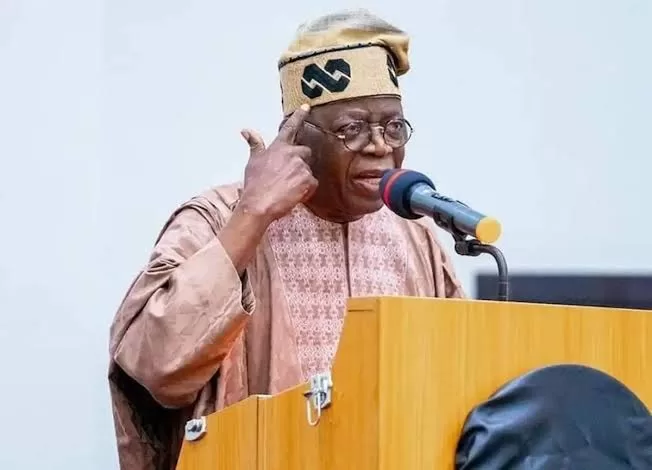President Bola Tinubu’s recent statement during his visit to France capsulize the challenges facing Nigeria’s economic transformation. Declaring that “Nigeria must work,” Tinubu underscored the urgency of moving beyond decades of dependency and resource underutilisation. His remarks, far from rhetorical, where a direct challenge to Nigeria’s states to reconsider their economic strategies and embrace self-reliance.
For years, Nigeria’s federal system has perpetuated an unhealthy reliance on allocations from the Federal Account Allocation Committee (FAAC). States have routinely depended on these disbursements while failing to harness their vast local resources. Consider Ebonyi State, which holds some of Nigeria’s largest limestone deposits but lacks the facilities to process it into cement, a commodity in high demand across the nation. Similarly, Enugu State’s coal reserves, remain underdeveloped, even as energy costs rise and cleanered alternatives are explored. In Bayelsa, one of Africa’s most gas-rich regions, underinvestment in extraction infrastructure has left the sector far from its potential.
This pattern extends beyond extractive resources. Akwa Ibom, with its picturesque beaches, has yet to establish itself as a tourism hub. Ondo State, despite sitting on vast bitumen reserves, imports the material for road construction. In Aba, home to West Africa’s largest market, economic activity is suppressed by inefficiencies and infrequent disruptions, further illustrating the systemic inertia gripping Nigeria’s states.
These cases are symbolical of a broader unease, the reluctance or inability of states to move beyond the comfort of federal allocations. Tinubu’s economic reforms aim to end this dependency. As their core is a push for states to generate revenue independently, leveraging local resources and innovation. Tax reforms, improved regulatory frameworks, and the diversification of economic activities are expected to play key roles in this transition.
MOST READ ARTICLES
“In Bayelsa, one of Africa’s most gas-rich regions, under-investment in extraction infrastructure has left the sector far from its potential.”
The rationale is compelling. Over-reliance on oil revenue has left Nigeria vulnerable to global price shocks and undermined fiscal sustainability. Empowering states to develop autonomous economies could reduce the structural imbalances that have long suppressed national growth. Yet, the path forward is full of challenges.
Tinubu’s rhetoric, while galvanising, must be matched by substantive policy measures. Local governments will need clear incentives and technical support to undertake the difficult work of unlocking their economic potential. Structural reforms are essential: investment in infrastructure, regulatory modernisation, and public-private partnerships will be critical to attracting both domestic and foreign investment.
Equally, another significant is accountability. States must demonstrate fiscal responsibility and transparency in managing their resources. Too often, the mismanagement of public funds has trammeled development efforts, undermining public trust and discouraging investors. Addressing these governance deficits is crucial if states are to succeed in their quest for self-reliance.
However, the federal government also has an important role to play. It must provide an enabling environment by addressing macro-economic challenges, such as inflation, currency instability, and weak capital markets. Collaborative frameworks between the federal and state governments will be indispensable, ensuring that reforms are implemented adhesively and equitably.
The risk of resistance or inactive at the state level cannot be underrated. Many state governments have grown accustomed to the status quo, and political will at the subnational level will be essential for change. Public engagement will also be critical. Tinubu’s administration must communicate the long-term benefits of these reforms to the Nigerian people, who may initially bear the brunt of fiscal tightening.
The stakes are high. Nigeria’s economic trajectory hinges on its ability to transition from a centralised, allocation-based system to a decentralised, productivity-driven model. If successful, Tinubu’s reforms could unlock immense economic potential, reduce regional disparities, and position Nigeria as a more resilient and competitive player on the global stage. This transformation will not only require a shift in fiscal policy but also an overhaul in how resources are managed, ensuring that all regions, from the oil-rich south to the resource-abundant north, leverage their unique advantages. By empowering states to develop local industries, diversify their economies, and cultivate innovation, Nigeria could achieve a more balanced and sustainable economic future.
The president’s call for economic self-reliance is a necessary step, but its success will depend on more than rhetoric. It will require coordinated efforts from all levels of government, the private sector, and civil society. Bold leadership will be crucial in setting the tone for these changes, while the private sector must step up as both an engine of growth and an active participant in driving infrastructure development. States must look beyond their reliance on federal allocations and begin building local economies through strategic investments in sectors such as agriculture, technology, and renewable energy. A culture of innovation must be fostered across the nation to ensure that Nigeria’s economic future is not tied solely to the volatility of global oil prices.
Furthermore, Nigeria’s fiscal and institutional frameworks must evolve to support these ambitious reforms. Strengthening transparency, accountability, and governance at all levels will be crucial in ensuring that state resources are used efficiently and effectively. Only through robust institutions and the application of sound economic principles can Nigeria hope to build the foundation for a truly self-sustaining economy.
The commitment to resource optimisation, diversification, and sustainable development will require patience, perseverance, and a long-term vision. Nigeria’s leaders must be prepared to navigate the inevitable challenges and resistance that will emerge as this process unfolds. Public buy-in will be essential, as the reforms will impact citizens directly, from potential tax changes to the re-allocation of resources. Effective communication will be key to winning the support of Nigerians who may initially question the short-term costs of these reforms.
As Tinubu rightly asserts, “Nigeria must work.” The time for action is now. The path to prosperity and self-reliance will be difficult, but it is a journey that Nigeria must embark upon if it is to fulfil its potential as Africa’s economic powerhouse. There is no longer room for complacency, and no more free rides for states. The future of Nigeria’s economy depends on its leaders having the courage to take responsibility for their own growth and, in turn, contribute to the collective success of the nation. The time to act is now, and the success of these reforms will define the economic trajectory of Nigeria for generations to come.


